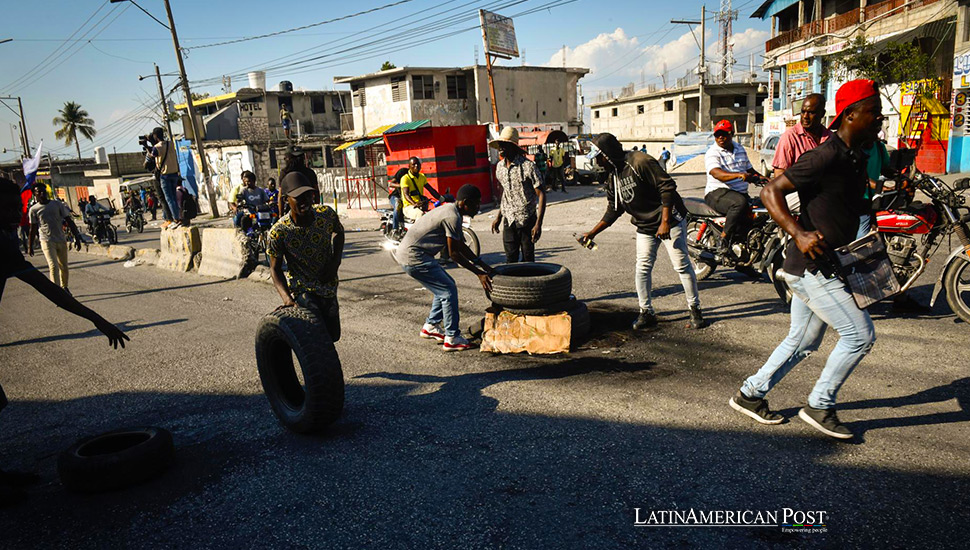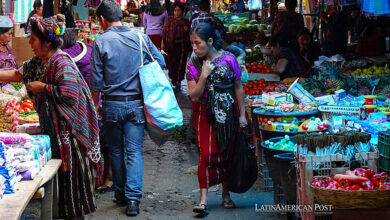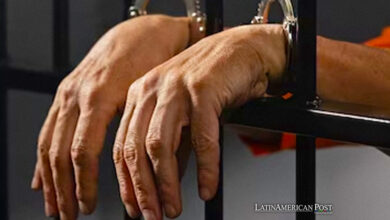The Story of Haiti’s Descent into Chaos Gang Dominance

In Haiti, a nation already brimming with tales of resilience and suffering, the recent surge in gang dominance paints a dire picture, calling for immediate international intervention to restore peace and order in this beleaguered Caribbean country.
In the labyrinthine streets of Port-au-Prince and the forgotten corners of rural Haiti, a crisis brews, a testament to the country’s tumultuous dance with armed factions and political instability. Haiti, a country with a rich tapestry of history marked by defiance and survival, finds itself at a crossroads, grappling with the unchecked rise of gang violence that threatens to consume its very essence. This feature explores the deepening crisis in Haiti, where gangs now wield unprecedented power, and the implications for the broader Latin American region, underscoring the urgent need for a concerted international response.
The Historical Echoes of Violence
The shadow of violence in Haiti is not a recent phenomenon. The legacy of the Duvalier dictatorship, with the notorious Tonton Macoutes, left an indelible mark on the nation’s psyche, using fear and brutality to quash opposition. Yet, the fall of the Duvaliers did not herald an era of peace but rather a vacuum where violence thrived, morphing into the complex web of gang alliances and rivalries that plague Haiti today.
The assassination of President Jovenel Moïse on 7 July 2021 marked a pivotal moment for Haiti, plunging it deeper into chaos. Moïse’s death shrouded in mystery and intrigue, not only left a void in the nation’s leadership but also emboldened gangs to expand their territories and influence. The power vacuum was exacerbated by the absence of a functioning legislature, leaving Prime Minister Ariel Henry to navigate a country spiraling out of control.
Gangs: The New Power Brokers
Under the shadow of this political disarray, gangs like G9, led by the infamous Jimmy “Barbecue” Chérizier, a former police officer turned gang leader, have risen to prominence. G9’s bitter rivalry with G-Pèp underscores the violent struggle for control that has spilled into the streets of Port-au-Prince, disrupting everyday life and instilling fear across communities.
The toll of this gang dominance is measured in human lives and suffering. According to the International Organization for Migration, schools have shuttered, hospitals have closed, and over 100,000 people have been displaced. The pervasive violence has also seen a stark increase in sexual assaults, with the UN reporting a 50% rise between 2022 and 2023. The gangs, armed with weapons smuggled from the US, present a formidable challenge to Haiti’s under-resourced national police force, leaving vast swathes of the capital under their control.
The Regional Ripple Effects
Haiti’s crisis does not exist in isolation but is a stark reminder of Latin America’s challenges. The region, no stranger to political upheaval and violence, watches closely as Haiti’s instability has the potential to spill over its borders. Countries in the Caribbean and beyond are keenly aware that resolving Haiti’s gang crisis is a matter of national security and regional stability.
Prime Minister Henry’s calls for international assistance reflect the gravity of the situation. Yet, the response has been tepid, with only a handful of countries expressing intent to send security personnel. Given Haiti’s past experiences with foreign occupations, the prospect of foreign intervention is fraught with historical sensitivities. The debate continues how to support Haiti in re-establishing order without reigniting old wounds of external meddling.
A Path Forward
In the face of this crisis, the path forward for Haiti is uncertain. Proposals from gang leaders for peace, albeit self-serving, hint at the desperation for a solution. Yet, without legitimate political leadership and a concerted international strategy to disarm and disband the gangs, the cycle of violence is likely to persist. The situation in Haiti is a clarion call for global attention and action, urging a response that goes beyond temporary measures to address the root causes of instability and violence.
Also read: A Firm Stance Against Extortion: Charting a Path for Haiti Without Capitulation
Haiti’s plight reflects Latin America’s broader challenges, where the interplay of historical grievances, political instability, and violence demands a nuanced and proactive international response. As Haiti teeters on the brink, the international community’s role in supporting a path to stability and peace has never been more critical. The time to act is to ensure that Haiti can emerge from the shadows of violence and reclaim its place as a vibrant, sovereign nation within the Latin American tapestry.




